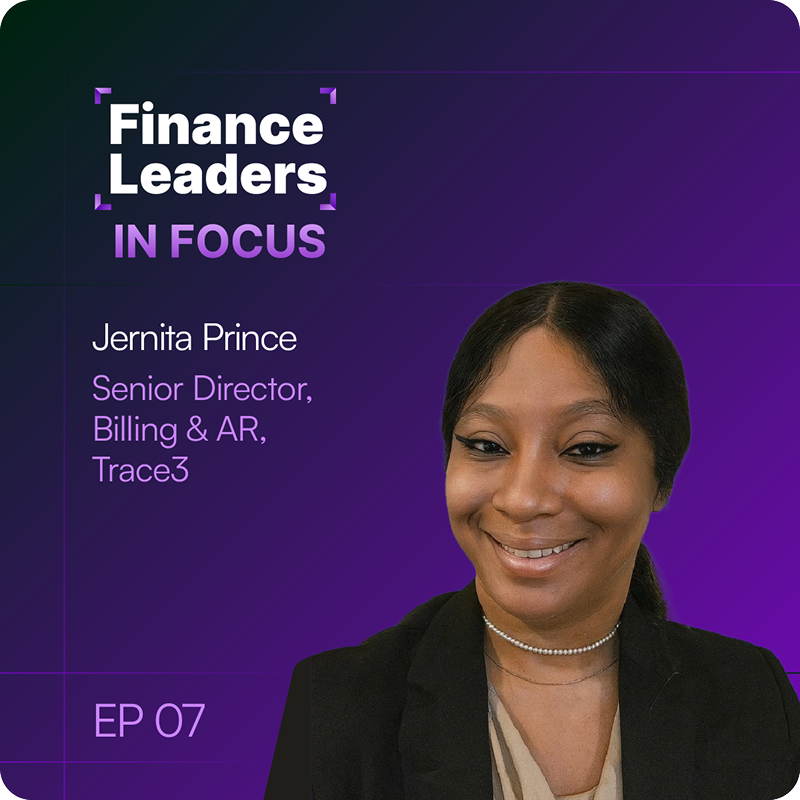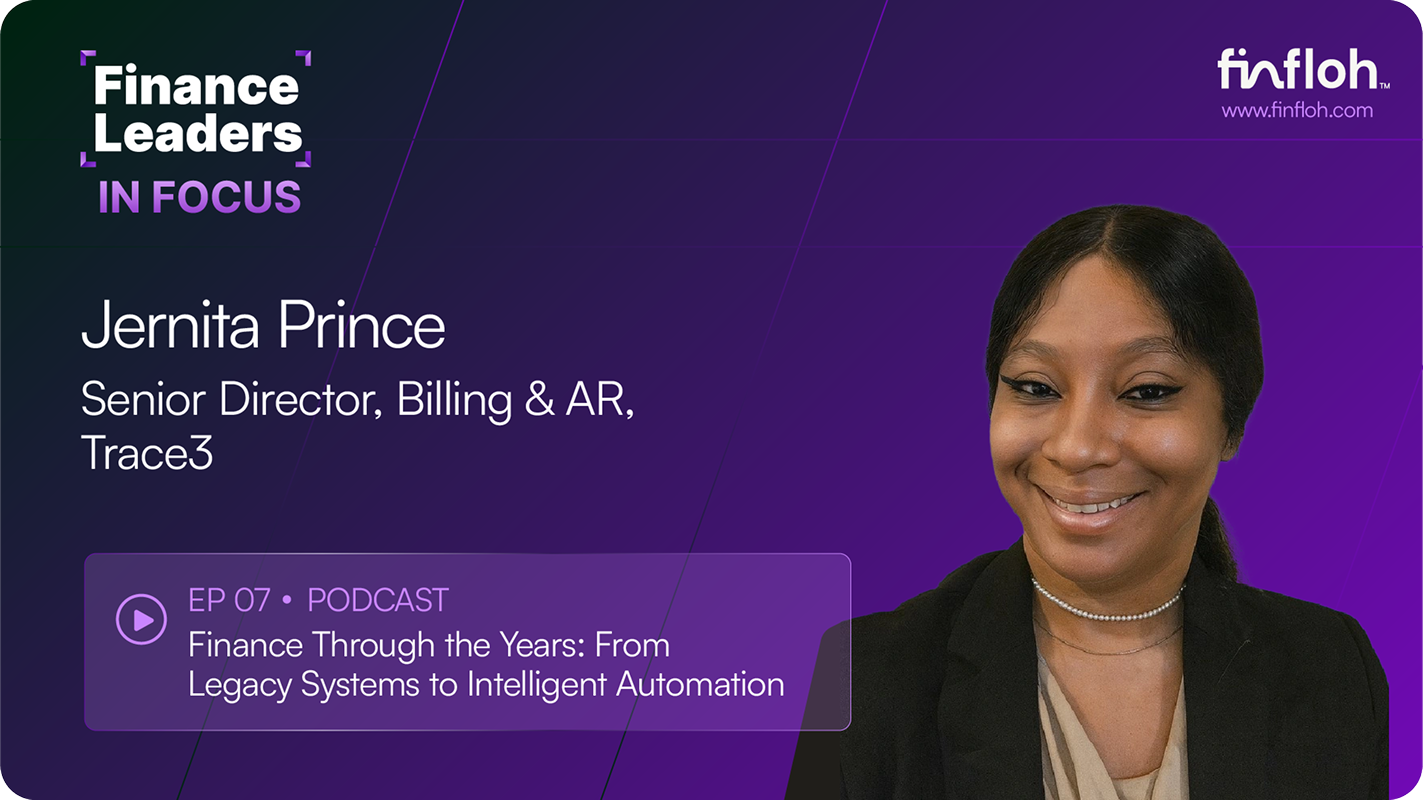Controllers as Finance Leaders
Chapters
Key Takeaways
- From Audit to Strategic Leadership – How Alex's journey from Deloitte auditor to VP Finance at Clio shaped his people-first approach to building finance
- Scaling with Intent – Lessons from growing a finance team from 5 to 60+, and why values like excellence, integrity, and empathy matter more than ever
- Modern Controllership – Why today's Controllers must evolve from gatekeepers to business storytellers and trusted advisors
- The ERP Gap & AI Promise – A candid take on why legacy ERP systems are stuck in the past, and how AI could finally move the needle — with the right data
- Advice for Aspiring Leaders – Be curious, define your leadership values, and be ready to go all in when opportunity knocks
Speakers

Guest Speaker
Alex MacGillivray
VP Finance at Clio

Hosted By
Amartya Singh
CEO & Cofounder, FinFloh
Episode Transcript
Amartya Singh: Welcome to Inside the CFO Office, an exclusive series for finance professionals and leaders. In this episode, we explore how the Controller role is transforming into a true leadership function — and I'm thrilled to be joined by Alex MacGillivray, VP Finance at Clio.
Alex has had a fascinating journey, from Deloitte to Easy Markit and now Clio, where he's helped the company scale through hypergrowth, multiple acquisitions, and a record-breaking $900M Series F funding. Welcome, Alex.
Alex MacGillivray: Thanks, Amartya. Happy to be here.
Amartya: Let's start with your journey. You've moved from audit at Deloitte to leading finance at one of Canada's top SaaS companies. What were some defining moments?
Alex: I started at Deloitte around the 2008 financial crisis. I didn't know exactly what I wanted, so audit gave me exposure to everything — oil & gas, a silver mine in Guatemala, even an aboriginal government in Northern Canada. Over time, I realized I wanted to work in tech. I joined a small dental tech startup where I was a finance team of one — that taught me a lot about operations. Then I went back to Deloitte, but this time focused on software clients. Eventually, Clio came along — and it's been a rocket ship ever since.
Amartya: And today, you lead a team of 60. That's a big scale-up. What's been your biggest learning?
Alex: Leadership is about values. We've grown from a 5-person team to over 60, and the only way to scale effectively is by being clear about what you stand for. My three core values are
Amartya: That's powerful. Let's shift to the Controller role. What are the top priorities for Controllers in today's world?
Alex: First — documentation and accuracy. For example, years ago we ran a one-time pricing incentive that skewed revenue numbers. We kept meticulous records. During our Series F due diligence, that documentation helped us recover value and boost our valuation. That one spreadsheet could be worth hundreds of millions today.
Second — relationships. You need deep touchpoints with leaders across sales, marketing, product. Finance can’t advise without understanding the business.
Third — storytelling. The best Controllers help the business understand itself through numbers. It’s not just about accuracy, it’s about context. And yes, AI can help here — I use Gemini and ChatGPT to turn raw data into insights and trends.
Amartya: That’s a great segue — what’s your take on today’s CFO tech stacks? Can AI really make a difference?
Alex: The opportunity is huge, but the landscape is stuck. Most ERPs are operating like it’s still 2005 — outdated UI, rigid workflows, expensive licenses. We’re desperate for modern tools. Where I see potential is in transaction-heavy areas like AP, AR, and expense categorization.
Last year alone, we posted over 6 million journal entries. That’s a massive data set AI can learn from. I’m hopeful — but the disruption will only happen if vendors can build tools that actually work across real-world complexity.
Amartya: Totally agree. At FinFloh, we’ve seen that as well — especially when using LLMs for real-time AR workflows. If finance teams can trust the system to triage, trigger workflows, or even respond to customer queries — that’s a game-changer.
Alex: Exactly. But the key is always clean, contextual data. Without that, AI is just another shiny object.
Amartya: One final question — what advice would you give to finance professionals stepping into leadership?
Alex: Three things:
First, curiosity. When something looks odd, investigate it. That’s where real insight lies.
Second, seize your moment. Jason Lemkin once said: “Once or twice in life, you get an opportunity you don’t deserve. Work 100 hours and make it happen.” Clio was that for me.
Third, define your leadership values. Most people can’t name theirs. But once you do, everything gets clearer — hiring, decision-making, culture. That’s how you build a team that’s an extension of yourself.
Amartya: Couldn’t agree more. And I loved your line
Alex: Thanks, Amartya. This was a great conversation.
Latest Episodes






Explore the Full Potential of FinFloh
Supercharge Your Receivables Performance